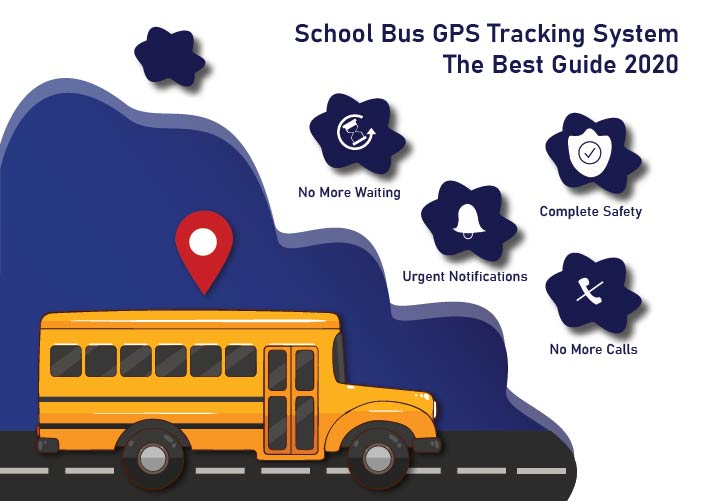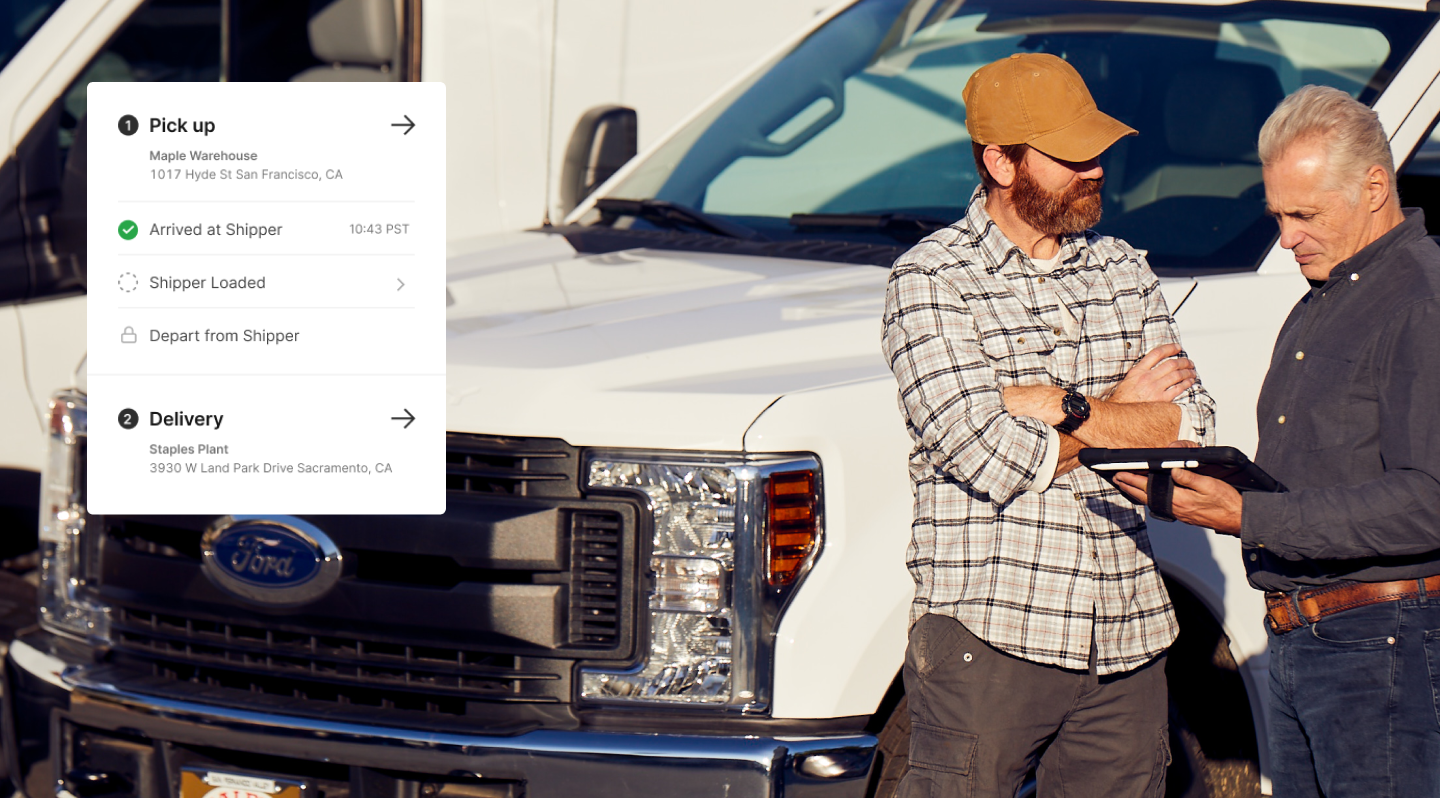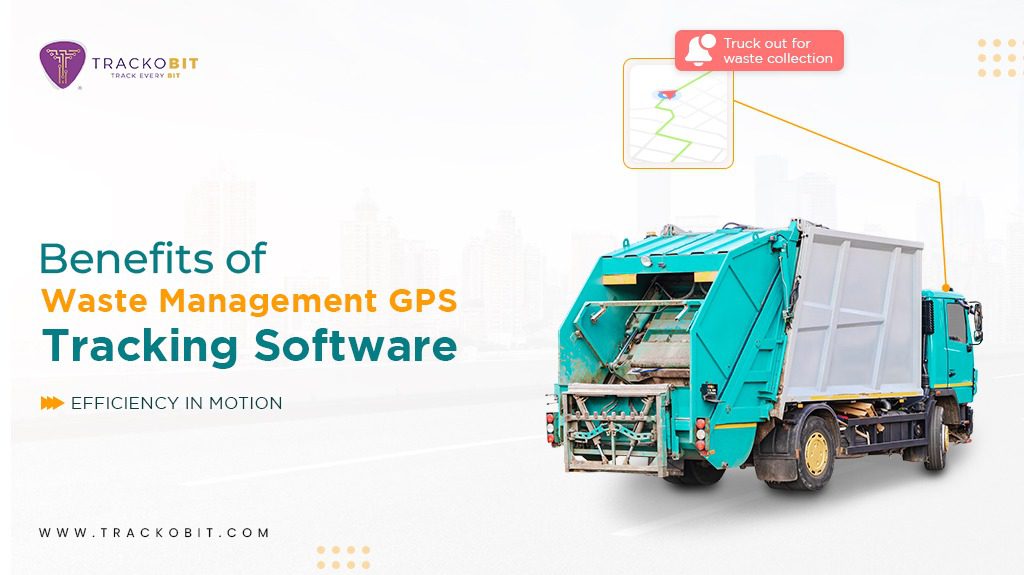Integrating trucking dispatch software with GPS tracking systems offers benefits such as improved fleet management, increased safety, real-time monitoring, and cost-effectiveness. By combining these technologies, fleet owners can optimize vehicle operations, reduce fuel costs, and enhance overall efficiency.
This integration enables businesses to track and manage their fleet effectively, ensuring timely deliveries and minimizing downtime. With real-time monitoring, fleet owners can also address any issues or delays promptly, resulting in improved customer satisfaction. Additionally, the integration of trucking dispatch software with GPS tracking systems provides accurate data on vehicle movements, fuel consumption, and maintenance schedules, allowing for better decision-making and streamlined operations.
Increased Efficiency And Productivity
Integrating trucking dispatch software with GPS tracking systems offers increased efficiency and productivity for fleet owners. With real-time monitoring and accurate vehicle location information, businesses can better manage their fleet, reduce fuel costs, and optimize operations.
Real-time Tracking Of Vehicles
Integrating trucking dispatch software with GPS tracking systems provides the benefit of real-time tracking of vehicles. This means that fleet owners can have complete visibility and control over their trucks at all times. With live GPS updates, they can monitor the exact location of each vehicle, ensuring that drivers are on the right track and sticking to their assigned routes. Real-time tracking also allows fleet owners to quickly identify any issues or delays in delivery. For example, if a driver encounters unexpected traffic or road closures, dispatchers can immediately adjust the route or send assistance to ensure that deliveries are made on time. This level of tracking and flexibility improves overall efficiency and productivity.Optimized Route Planning
Integrating trucking dispatch software with GPS tracking systems also enables optimized route planning. Fleet managers can use the data from GPS tracking to analyze traffic patterns, identify the most efficient routes, and plan the most optimal delivery schedules. By avoiding congestion and choosing the shortest and fastest routes, companies can reduce fuel consumption and minimize travel time. This not only increases productivity but also saves costs in terms of fuel expenses and vehicle wear and tear. Additionally, optimized route planning helps in better resource allocation. Fleet managers can allocate resources effectively based on the real-time location updates and traffic conditions. This ensures that drivers are utilized efficiently and are always on the most efficient routes, reducing idle time and maximizing productivity. In conclusion, integrating trucking dispatch software with GPS tracking systems provides increased efficiency and productivity in the transportation industry. Real-time tracking of vehicles allows for better monitoring and control, while optimized route planning reduces costs and improves resource allocation. By harnessing the power of technology, companies can streamline their operations, enhance customer satisfaction, and stay ahead of the competition.
Credit: www.fleetroot.com
Cost Reduction
Integrating trucking dispatch software with GPS tracking systems offers the benefit of cost reduction by optimizing fuel consumption and minimizing unauthorized vehicle use. This integration streamlines business operations and provides real-time data to efficiently manage fleet resources.
rall costs associated with trucking operations. One of the major cost-saving benefits of integrating trucking dispatch software with GPS tracking systems is the reduced fuel consumption. Lower Fuel Consumption: By integrating GPS tracking systems with trucking dispatch software, fleet owners can monitor the fuel consumption of their vehicles in real-time. This allows them to identify instances of excessive idling, aggressive driving, or inefficient routing that can lead to increased fuel consumption. With the ability to track the location and movement of each vehicle, fleet managers can optimize routes to minimize travel distances and avoid traffic congestion, ultimately reducing fuel consumption. Lower Maintenance Costs: Another significant cost-saving benefit of integrating trucking dispatch software with GPS tracking systems is the reduction in maintenance costs. GPS tracking systems provide real-time data on vehicle diagnostics, allowing fleet managers to proactively schedule maintenance and repairs before a breakdown occurs. By addressing maintenance issues promptly, fleet owners can avoid costly repairs and breakdowns on the road. Additionally, GPS tracking systems enable efficient monitoring of engine hours, mileage, and other performance metrics, ensuring that vehicles are serviced at the appropriate intervals, further reducing maintenance costs. In conclusion, integrating trucking dispatch software with GPS tracking systems offers substantial benefits in terms of cost reduction. By reducing fuel consumption through optimized routing and minimizing maintenance costs through proactive monitoring and maintenance scheduling, fleet owners can significantly cut down on operational expenses. This not only improves the bottom line but also enhances overall efficiency and provides a competitive edge in the trucking industry. To Summarize: – Integrating Trucking Dispatch Software with GPS Tracking Systems helps in reducing overall costs. – One of the major cost-saving benefits is reduced fuel consumption. – GPS tracking enables fleet optimization, minimizing travel distances and avoiding traffic congestion. – Real-time vehicle diagnostics allow for proactive maintenance scheduling, reducing costly repairs and breakdowns. – Efficient monitoring of engine hours and performance metrics ensures timely servicing, further reducing maintenance costs. – Overall, integrating GPS tracking systems with trucking dispatch software improves operational efficiency and provides a competitive advantage.Enhanced Safety And Security
Integrating trucking dispatch software with GPS tracking systems brings a host of benefits to fleet owners. One of the key advantages is enhanced safety and security for both the drivers and the vehicles. By leveraging real-time GPS tracking data, fleet owners can proactively monitor driver behavior and take necessary measures to ensure their safety on the road. Additionally, they can implement vehicle security measures to prevent theft and unauthorized use.
Improved Driver Behavior
With the integration of GPS tracking systems, fleet owners have access to valuable insights into driver behavior. This technology allows them to monitor parameters such as speed, harsh acceleration, and sudden braking. By analyzing this data, fleet owners can identify drivers who exhibit risky behaviors and take appropriate actions. Implementing driver training programs and providing feedback based on GPS tracking data can significantly improve driver behavior and reduce the likelihood of accidents on the road.
Vehicle Security Measures
Protecting fleet vehicles from theft and unauthorized use is a top priority for fleet owners. Integrating trucking dispatch software with GPS tracking systems enables real-time monitoring of vehicle locations. In the event of vehicle theft, fleet owners can quickly track and recover the stolen vehicle using the GPS tracking data. Moreover, fleet owners can set up geofencing alerts that notify them whenever a vehicle deviates from the predefined routes or enters unauthorized areas. This adds an additional layer of security to the fleet and reduces the risk of vehicle theft or misuse.
Streamlined Logistics Management
By integrating trucking dispatch software with GPS tracking systems, companies can benefit from streamlined logistics management. This integration allows for real-time monitoring of vehicles, improved fleet management, reduced fuel consumption, and overall cost reduction.
Efficient Dispatching
In the world of trucking, efficient dispatching is crucial to maximizing productivity and minimizing costly delays. Integrating trucking dispatch software with GPS tracking systems provides a streamlined logistics management process that helps dispatchers make informed decisions quickly and effectively. With real-time GPS data at their fingertips, dispatchers can easily locate and assign the nearest available truck to a job, reducing response times and improving overall efficiency. This integration eliminates the need for manual coordination and guesswork, ensuring that the right truck is dispatched to the right location at the right time.Inventory Management
Effective inventory management is essential for trucking companies to maintain optimal levels of goods and products. By integrating trucking dispatch software with GPS tracking systems, fleet managers gain complete visibility into the whereabouts of their inventory at all times. With real-time GPS tracking, they can accurately track the movement of goods from start to finish, ensuring accurate inventory counts and reducing the risk of theft or loss. The combination of trucking dispatch software and GPS tracking allows for seamless coordination between dispatchers, drivers, and warehouse personnel, enabling efficient inventory management throughout the supply chain. In summary, integrating trucking dispatch software with GPS tracking systems provides a range of benefits for streamlined logistics management. Efficient dispatching enables dispatchers to quickly assign the nearest available truck to a job, improving response times and overall efficiency. Inventory management becomes more accurate and efficient with real-time GPS tracking, allowing for precise tracking of goods and reducing the risk of theft or loss. By harnessing the power of technology, trucking companies can enhance their logistics operations and gain a competitive edge in the industry.Integration And Compatibility
When it comes to trucking dispatch software and GPS tracking systems, one of the key factors that determine their effectiveness is the integration and compatibility with current systems. Having a seamless integration with existing software and devices can greatly enhance the efficiency and productivity of trucking operations. Additionally, compatibility with mobile devices ensures that fleet managers and drivers can access real-time information on the go, enabling them to make informed decisions and improve overall fleet management.
Seamless Integration With Current Systems
With the ever-evolving technology landscape, it is essential for trucking companies to choose a dispatch software that seamlessly integrates with their current systems. Whether it’s the accounting software, customer relationship management (CRM) tools, or other operational platforms, having a smooth integration eliminates the need for manual data entry and minimizes the risk of errors. The dispatch software should be able to communicate effortlessly with other systems, ensuring streamlined operations and seamless information flow.
Compatibility With Mobile Devices
In today’s fast-paced world, it is crucial for fleet managers and drivers to have access to real-time information on their mobile devices. This not only improves communication but also enables quick decision-making and efficient fleet management. A dispatch software that is compatible with mobile devices allows drivers to receive updated routes, delivery instructions, and other important information directly on their smartphones or tablets. This eliminates the need for printed maps or constant phone calls, ultimately saving time and reducing the chances of errors.
Moreover, mobile compatibility empowers fleet managers to monitor the status and location of vehicles, even when they are away from their desks. They can receive instant alerts in case of any route deviations, delays, or emergencies, allowing them to take immediate actions to ensure operations run smoothly. By having access to real-time data anytime, anywhere, fleet managers can make well-informed decisions and optimize resource allocation for maximum efficiency.
In conclusion, integrating trucking dispatch software with GPS tracking systems provides multiple benefits for fleet management. The seamless integration with current systems minimizes manual work and reduces errors, while compatibility with mobile devices ensures access to real-time information on the go. By investing in an integrated and compatible solution, trucking companies can optimize their operations, enhance productivity, and ultimately achieve better business outcomes.

Credit: gomotive.com

Credit: trackobit.com
Frequently Asked Questions On Benefits Of Integrating Trucking Dispatch Software With Gps Tracking Systems
What Are The Benefits Of Having Gps Systems In Your Fleet Management System?
Having GPS systems in your fleet management system offers several benefits. You can monitor vehicle operation, detect poor driving behavior, and decrease fuel costs. It also improves vehicle security, fleet management, safety, insurance premiums, and provides real-time monitoring.
What Are The Benefits Of Gps Tracking?
GPS tracking offers various benefits, including enhanced vehicle security, improved fleet management, increased safety, lower insurance premiums, peace of mind, real-time monitoring, and cost-effectiveness. With GPS trackers, businesses can track their vehicles’ locations, monitor driving behaviors, prevent unauthorized use, and make informed decisions based on accurate data.
What Is The Use Of Gps In Logistics Management?
GPS in logistics management allows real-time tracking of vehicles, enabling precise fleet management. With GPS, you can monitor vehicle movements, track fuel consumption, and schedule maintenance effectively. It also helps reduce costs, streamline operations, and increase overall efficiency in logistics.
What Are All The Benefits Of Gps Container Tracking?
GPS container tracking offers several benefits, including accurate and real-time location information about the goods, improved supply chain efficiency, prevention of theft and loss, better customer service, and informed decision-making.
Conclusion
The integration of trucking dispatch software with GPS tracking systems offers a multitude of benefits for fleet management. These include improved vehicle security, better fleet management, increased safety, lower insurance premiums, peace of mind, real-time monitoring, and cost-effectiveness. By leveraging GPS technology, businesses can gain valuable insights into vehicle operations, reduce fuel costs, and enhance overall efficiency.
Integrating these systems is a crucial step towards a more streamlined and profitable trucking operation.
- How to Diagnose Bad Strut Mounts: Expert Tips for Quick Fixes - May 16, 2024
- How to Bypass Blower Motor Relay: 7 Expert Techniques - May 16, 2024
- How to Easily Check Ecu Ground: Essential Steps for Optimal Performance - May 16, 2024

